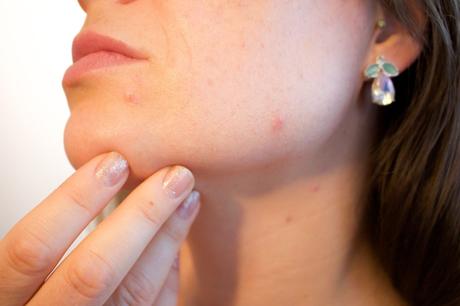 Photo Credits: Kjerstin_Michaela
Photo Credits: Kjerstin_Michaela
For those of us with skin difficulties, there is only one thing worse than aggravating acne, its the skin discolouration or scar left behind once the pimple is gone. For those who want to get rid of them, there is a longer process like Diego Dalla Palma skin lab. However, if you want to opt for on-the-spot operations, here are seven treatments that will help you get rid of those acne scars for good.
The good news is that most of the marks we think of as acne scars are actually considered blemishes or discoloration by dermatologists. These marks may be unsightly, but they are temporary, and with patience, they will eventually go away on their own. One of the treatments that help speed up the healing process is to use skincare products that contain retinol.
Retinol is a highly recommended skincare treatment for treating skin inflammation and reducing the appearance of dark spots and pigmentation. Retinol increases the production of new skin cells, which evens out the skin texture and tone, and it can increase the production of collagen to help regrow new skin cells.
Retinol can irritate some skin types, or if you have rosacea, so it is best to check with your dermatologist before trying it.
We all know about the importance of sunscreen for preventing skin damage and signs of ageing, but did you also know that it can help get rid of your acne scars? Sunscreen helps prevent spots and irritation from acne scars from becoming permanent skin damage. It can also keep these same spots from getting darker and more visible due to increased UV damage.
One of the most effective ways to treat your acne scars is to slather on the sunscreen and protect your skin.
If you have more intensive acne scarring that has permanently damaged the surface of your skin, micro-needling is an effective treatment that offers dramatic results.
The purpose of micro-needling is to stimulate collagen growth below the surface of the skin and increase the growth of healthy new skin cells.
A roller with tiny needles treats the surface of the skin. These minuscule needles make small punctures into the underlying skin layers, which stimulates new skin cell growth as the perforations heal. The roller also helps deliver skincare treatments deep into the skin where they can be most effective.
Another more intensive treatment for acne scarring is laser treatments. These are an in-office procedure done by a dermatologist or skin care professional. The lasers treat the surface of the skin, reducing inflammation and the appearance of the acne scars. They also treat the skin layers below the surface to help stimulate new collagen growth.
Antioxidants work to fight skin damage caused by UV rays and other toxins in the air. They also help brighten skin tone and stimulate new skin cell growth. Vitamin C is one of the best antioxidants for the skin. It helps to reduce the appearance of acne scars by removing the surface cells and also is excellent for stimulating collagen growth.
Dermal fillers are a treatment done by your dermatologist or skincare expert, who injects a small amount of filler to temporarily plump up the skin and smooth out the indentations left by an acne scar. There are many different fillers available, and some also offer the benefits of increasing collagen growth.
This procedure is temporary, and consecutive treatments are needed to maintain the effect.
Skin treatments involving lactic acid help to improve skin texture and lighten pigmentation associated with acne scars. Lactic acid is mild and suitable for all types of acne scarring. Lactic acid can be found in many serums, peels, and ointments, or even in apple cider vinegar (which you can use diluted as a DIY skin toner).
Comments
comments

